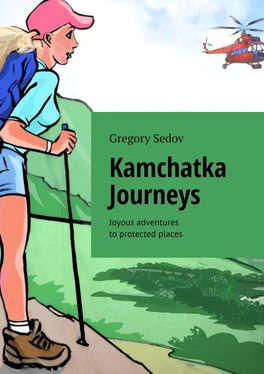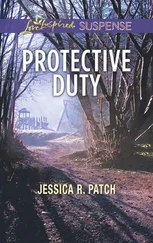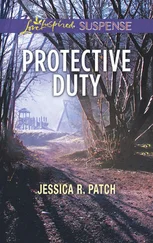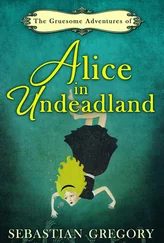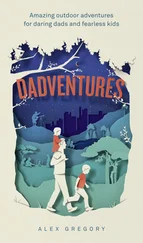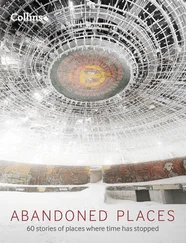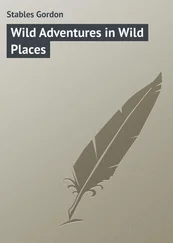Gregory Sedov - Kamchatka Journeys. Joyous adventures to protected places
Здесь есть возможность читать онлайн «Gregory Sedov - Kamchatka Journeys. Joyous adventures to protected places» — ознакомительный отрывок электронной книги совершенно бесплатно, а после прочтения отрывка купить полную версию. В некоторых случаях можно слушать аудио, скачать через торрент в формате fb2 и присутствует краткое содержание. ISBN: , Жанр: russian_contemporary, Прочие приключения, на английском языке. Описание произведения, (предисловие) а так же отзывы посетителей доступны на портале библиотеки ЛибКат.
- Название:Kamchatka Journeys. Joyous adventures to protected places
- Автор:
- Жанр:
- Год:неизвестен
- ISBN:9785449313102
- Рейтинг книги:5 / 5. Голосов: 1
-
Избранное:Добавить в избранное
- Отзывы:
-
Ваша оценка:
- 100
- 1
- 2
- 3
- 4
- 5
Kamchatka Journeys. Joyous adventures to protected places: краткое содержание, описание и аннотация
Предлагаем к чтению аннотацию, описание, краткое содержание или предисловие (зависит от того, что написал сам автор книги «Kamchatka Journeys. Joyous adventures to protected places»). Если вы не нашли необходимую информацию о книге — напишите в комментариях, мы постараемся отыскать её.
Kamchatka Journeys. Joyous adventures to protected places — читать онлайн ознакомительный отрывок
Ниже представлен текст книги, разбитый по страницам. Система сохранения места последней прочитанной страницы, позволяет с удобством читать онлайн бесплатно книгу «Kamchatka Journeys. Joyous adventures to protected places», без необходимости каждый раз заново искать на чём Вы остановились. Поставьте закладку, и сможете в любой момент перейти на страницу, на которой закончили чтение.
Интервал:
Закладка:
The clients are worrying about the hunt. They check their guns first thing. The hunters proudly show their Brownings and Mausers and let everybody who wants fire a shot from the rare weapon. Our gamekeepers are skeptical about the heavy rifles and in their turn suggest trying a short SKS rifle. After shooting a pile of cartridges, everybody goes to lunch. My shoulder hurts after shooting from the German rifle. After lunch (several toasts have been proposed to the successful arrival) Sikorsky volunteers to demonstrate the performance capabilities of the Soviet helicopter. The blades of the Mi-8 are picking up speed; it takes off and disappears behind the forest. Suddenly, the huge aircraft turns up from behind the mountain, descends, makes a loop, and when it’s several meters from the earth surface it soars into the sky. The foreigners gasp. The chopper returns, hangs in the air, and then slowly flies backwards! The scene looks like in a Sci-Fi movie. Sikorsky flies to a tall pine, chops all branches growing on one side of the tree with the anti-torque rotor, then it moves a bit forward, hangs, returns, and cuts the branches on the other side. The grateful spectators applause.
Everybody comes to the spacious tent for dinner, which serves as a canteen. The fire in the cast-iron wood stove crackles, the floor is carpeted with mountain pine boughs. We raise glasses to friendship between nations, to peace in the world, to the unique Kamchatka nature. At the opposite end of the table Sikorsky explains in gestures the maneuver he did as the “Afghan run”. The Germans sit in a row and start singing military marching songs, which tunes resemble soundtracks of Soviet war films. One of the Germans raps the rhythm on the table with his hand. The Russian hunters start, in their turn, the folk songs “I’ll go to the field with the horse” and “A young Cossack is strolling on the Don”. The Norwegian guy tries to compete with gamekeepers in drinking. They are just smiling. The senior gamekeeper tells jokes. I’m trying to find a funny equivalent in English.
Translate to him! – Petrovich is unhappy with the lengthy pause in my translation. – You don’t know English, I’ll tell him myself. Listen and learn. The senior gamekeeper and the German start a conversation (they both poke their fingers and pat on each other’s backs):
– I, u! Frendz! Ok?
– Okey!
– Hunt! Ok?
– Okey!
– Bear! Pow! Pow! Ok?
– Okey, okey! Big, big bear!
– U have dollarz?
– Yes!
– Ок!
When the hunt is over, you’ll give me your earnings. I translated everything myself, – sums up Petrovich. After the festive dinner, the international team goes out to light fireworks. Finally, we go to bed.
In the middle of the night a dreadful roar wakes me up. It sounds as if somebody is scratching the tent from outside. My imagination conjures a terrible scene. A bear? – I ask. The Norwegian, – answers the gamekeeper yawning. Everybody turns over onto another side and falls back asleep. Curious, I get dressed, take a torch, and go out. I see footprints deep in snow leading from the entrance to the side of the tent. “It must be a bear!” – I hesitate whether I should go farther. I still can hear the roar. I keep on going shining with the torch – blood on the prints. I have the creeps. I turn round the tent and see in the flash of the light the Norwegian standing on all four limbs having sunk deep in the snow. The ice crust, which formed on the snow surface at night, cut his legs. He’s groaning like a trapped animal, most probably, having no idea what to do next. I rescue him and help to get back to the tent.
In the morning, Petrovich, who looked as if he hatching a plot, signals me to come to him. First, we’ll work with the Germans. We’ll take you to the farthest station so the Swiss don’t feel jealous. You’ll be staying there for about two days. So, we’re delivered to the station – a slapdash shack. We are met by two local gamekeepers. They look like they’ve been here since World War II and don’t know yet that the war is over. A box with vodka is being unloaded from the helicopter.
At night, outside the hunter’s cabin has descended a typical Kamchatka snowstorm. The gamekeepers’ faces change in the stove’s firelight. Waving with their arms and dreadfully goggling, they interrupt each other telling the Swiss how they’ve met giant bears. How they drove to the bear by snowmobile, took a shot, missed it, the second gun misfired, then the snowmobile faded while the bear kept on running in their direction. By the morning, the size of the bears had overgrown elephants. Scared, the Swiss draw closer to each other. Perhaps they remember Napoleon’s unenviable fate when he came to Russia. The thought that it may be their last day makes them drink vodka hard.
The next morning the sun is shining brightly with the fresh fallen snow sparkling outside the cabin. No helicopter today, – says a gamekeeper. Tell them to catch fish.
Are there fish?
None. But who cares?
The Swiss are given two sticks with the coiled line and a hook. They are catching something the whole day with great enthusiasm in a small brook nearby. By the evening I started feeling pity for them and recite Goethe’s poem in German.
On the third day we fly by chopper. However we fly not to the camp, but to Milkovo village. While we were away, they’ve run out of vodka. We arrive at Milkovo and take a box of vodka. But now we fly to Kozyrevsk village. I look at the map and marvel at what a long way round it is. It’s the only place where we can refuel, – merrily comments Sikorsky. I sit on a stowaway seat next to the door. During the landing I pull a red lever arm. The door of the helicopter bales out. I’m looking at it with surprise. It was the wrong arm, – chuckles the flight mechanic. – It’s an emergency catapult. After the landing we search for the errant door, find it, and place it back.
At night, I go and see the tourists. The couple of Argentinian pensioners – the husband and wife – are in one of the tents with “the last farewell” on their faces. The fire in their stove is dead. I light the fire again and make the clients feel cozy.
The following day we take the Swiss to hunt. We drop them off and fly away. A bit later Sikorsky starts using bad language. What’s wrong? A Swiss shot a bear dead on the river. We fly to the river, land on a spit, hitch the bear, but we can’t take off – there’s not enough thrust because of the trees. The copilot gestures to the passengers to leave the helicopter and he himself jumps on rocks. The aircraft piloted by Sikorsky lifts off the ground begrudgingly and slowly disappears behind the forest. We cross the river waist-deep in water. On the last day, we collect the trophies, say goodbye to the gamekeepers, and return home.
Kamchatka. Spring. The fourth year of studying at the Institute. Romenskaya, the teacher of the German language, wakes me up: Sedov, you don’t know German at all!
The earthquake
What do tourists in Kamchatka notice? First of all, unrivaled landscapes – from the oceanic coast to snowcapped mountains; secondly, the unique flora and fauna – salmon spawning in rivers, bears walking the city streets, rhododendrons blossoming in alpine meadows; thirdly, the amazing character of the people inhabiting the peninsula – people with a severe look but kind heart. However, visitors are rarely lucky to experience the natural phenomenon the locals are accustomed to.
Ask any Kamchadal about earthquakes. After making a serious face, they will readily tell you that Kamchatka, along with the Hawaiian Islands and Japan is part of the Pacific Ring of Fire – an area on the Earth with high seismic activity. Because of collision of tectonic plates the Earth’s surface regularly shakes Kamchatka. The power of an earthquake is classified in points by the Richter magnitude scale (don’t confuse with the famous Soviet pianist). The magnitude and depth of the epicenter are very important. The lower the magnitude and deeper the epicenter, the better. The activity is registered by special sensors placed throughout Kamchatka. Earthquakes may be followed by aftershocks – gradually dissipating shocks. Every Kamchadal is sure it is good if a volcano starts erupting. It means the Earth’s energy is released through its crater in the form of ash and lava. Small earthquakes occur several times a month. Locals are not very sensitive to them, but people who have come here from the mainland need time to get used to them.
Читать дальшеИнтервал:
Закладка:
Похожие книги на «Kamchatka Journeys. Joyous adventures to protected places»
Представляем Вашему вниманию похожие книги на «Kamchatka Journeys. Joyous adventures to protected places» списком для выбора. Мы отобрали схожую по названию и смыслу литературу в надежде предоставить читателям больше вариантов отыскать новые, интересные, ещё непрочитанные произведения.
Обсуждение, отзывы о книге «Kamchatka Journeys. Joyous adventures to protected places» и просто собственные мнения читателей. Оставьте ваши комментарии, напишите, что Вы думаете о произведении, его смысле или главных героях. Укажите что конкретно понравилось, а что нет, и почему Вы так считаете.
